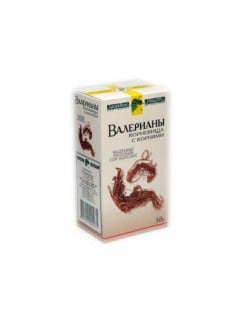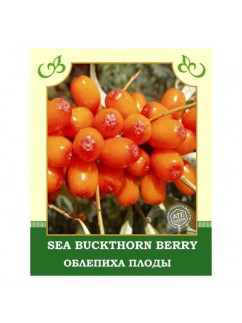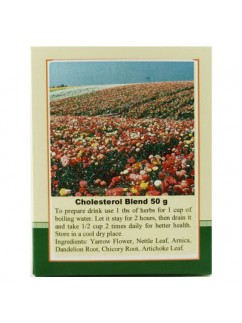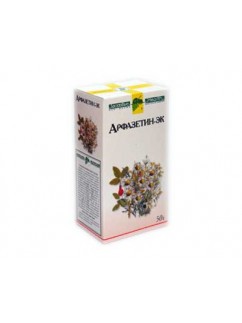Dry Herbs & Berries
- Valerian has been used as a sleep aid for over 1,000 years. This herb is a native plant both of Europe and North America. Valerian roots are often prepared in tea form, and in doing so they should not be prepared with boiling water, as this may drive off the lighter oils. Its ability to help relax the central nervous system, promote feelings of calm, decrease levels of anxiety and stress, and enhance sleep are known to millions the world over. Unlike some prescription sleep aids, valerian is not known to cause morning grogginess and is non-addictive.$7.99
- Foxberries are widely used in northern Europe, notably in Scandinavia. Scandinavian people like foxberries and use them for food as a source of vitamins and essential nutrients. But it is important to know that foxberry leaves are of great value too. They have antimicrobial, cholagogic, astringent and anti-inflammatory effects. Leaves preparations help strengthen capillaries and stimulate host defenses. Foxberry leaves contain Vitamins, flavonoids, tannins, acids and other nutrients. Leaves preparations are often used as a supportive therapy during recovery periods. And finally this herb stimulates nitrogen metabolism.$7.99
Internally. This remedy improves overall well-being, reduces cholesterol levels in atherosclerosis with predominant involvement of the aorta and coronary vessels. It creates a favorable background for various cardiovascular diseases, rheumatocarditis. It enhances mental performance, reduces fatigue during physical exertion, improves hearing and vision, is beneficial for mild forms of diabetes, and aids in enhancing male potency.
Method of use and dosage: Roots in a 1:1 ratio are infused in 40% alcohol, infused for 2-3 weeks, strained, and taken at a dose of 15-20 drops 2-3 times a day 30 minutes before meals in the first half of the day.
Contraindications: Individual intolerance, arterial hypertension, myocardial infarction, hypertensive crises, febrile conditions, acute infectious diseases.
$6.99Internally. Taken to stimulate the immune system, prevent and treat bacterial diseases, viral flu, chronic inflammations, poliomyelitis, herpes, and also used in skin grafts. Echinacea helps with arthritis, hepatitis, cystitis, leukemia, sepsis, prostatitis, and prostate hypertrophy.
Method of use and dosage: The tincture is prepared at a mass ratio of 1:10 in 70% alcohol. Take 20-30 drops 3 times a day. Decoction: 1 tablespoon of crushed leaves is poured with 200 ml of boiling water, boiled with a closed lid on low heat for 5 minutes, and strained. It is consumed throughout the day in small portions.
External use: Used for psoriasis, eczema, trophic ulcers, first-degree burns, frostbite, and severe bedsores.
Contraindications: Individual intolerance.
$6.99Internally: Has a beneficial effect on the state and efficiency of the nervous system. Chicory root improves the functioning of the gastrointestinal tract, urinary system, and contributes to lowering blood sugar levels. Enhances metabolism, significantly reducing body weight.
Method of application and doses: Grind into powder, pour 1 teaspoon with cold water (200 ml), and put it on the heat. Bring to a boil, infuse for 5-10 minutes. It is recommended to take one-third of a glass before breakfast, lunch, and dinner.
Contraindications: Individual intolerance.
$6.99Externally, the powder of marl has resorptive and whitening effects. For adolescent acne, marl powder is mixed to the consistency of sour cream with 3% hydrogen peroxide or a 5% solution of boric acid. It is heated in a water bath and rubbed into the facial skin, wearing rubber gloves. After 30 minutes, the mask is washed off.
In places of bruises, pigmentation on the face, bruises, and hematomas, a mixture of 1 part marl powder and 30 parts vegetable oil, preferably olive oil, is rubbed. This is also a good distracting remedy for muscle pain.
For oily seborrhea, slowly add 3% hydrogen peroxide or a solution of boric acid (0.5 teaspoon per 0.5 cup of water) to 1 teaspoon of marl powder, stirring. The mixture, with the consistency of sour cream, is heated in a water bath and warm rubbed into the hair roots once every 5 days.
Contraindications: Individual intolerance. Do not apply around the eyes, do not use on dry and thin facial skin, in the presence of superficial vessels, and with increased hair growth on the face.
$6.99
Description. Sea Buckthorn is one of the important natural resources growing from Europe to China. For centuries, the people of central and southeastern Asia have used sea buckthorn as an agent of traditional medicine to prevent and heal various ailments. Today, the plant is primarily valued for its fruits, which provide vitamin C, vitamin E, B1, B2, K, P and other nutrients (sodium, magnesium, silicon, iron, aluminum, calcium, manganese) antioxidants, oils rich in essential fatty acids, and other useful components. The most important pharmacological functions attributed to sea buckthorn are: anti-inflammatory, antimicrobial and vitaminous. Sea buckthorn has been shown to have a potent antioxidant activity, mainly attributed to its flavonoids and vitamin C content. Vitamin B in Sea Buckthorn has a positive effect on Mens Health. Uses. There are five areas of sea buckthorn use: as an aid to patients undergoing cancer therapy; a long-term therapy for reduction of cardiovascular risk factors; reduction of gastrointestinal ulcers; internal and topical therapy for a variety of skin disorders; and as a liver protective agent (for chemical toxins) and a remedy for liver disorders. Sea buckthorn berries are use for avitaminosis and escorbuto.
Warning! Before using any herbal products, make sure that you have full knowledge of how the herb works and any adverse reaction it may cause.$8.99
Description. Nettle is very popular with herbalists and homoeopathists. Nettle consists of formic acid, mucilage, mineral salts, ammonia, carbonic acid and water. The herb also contains vitamins C, K, B2, carotin, and nutrients like iron, potassium, calcium, sulfur and proteins. Nettle leaf produces styptic, blood and bile expelling, diuretic, purgative, anti-inflammatory, antiseptic, antispasmodic, expectorating, spasm inducing and tonic effect. Nettle leaf preparations help improve blood coagulability, raises the quantity of hemoglobin, platelets and red corpuscles in blood. It also helps lower the quantity of sugar in blood and has a stimulating action. Do not use in cases of hypersensitivity, thick blood, diseases requiring surgical intervention. Use with care with kidney problems. Use. Use in cases of hemorrhages (including pulmonary hemorrhage, blood in urine, intestinal and hemorrhoid hemorrhage), vitamin deficiency, arteriosclerosis, inflammation of the gallbladder, ulcer of the stomach and the upper small intestines (duodenum), constipation, inflammation of the small intestines, non-healing festering wounds, surface ulcers, boils, herpes, acne, bed sores, iron deficiency anemia, kidney diseases, diseases of the respiratory tract, poly-mecorrhea, fibroid tumors of the uterus, epilepsy, hysteria, rheumatoid arthritis, aches and pains in the muscles, gout, diabetes mellitus, angina, and to improve gums and hair growth.
Attention! Before using any herbal products, make sure that you have full knowledge of how the herb works and any adverse reaction it may cause.$6.99- Contains: Yarrow flowers, Nettle leaves, Arnica flowers, Dandelion root, Chicory root granules, and Artichoke leaves. Uses:Cholesterol Blend has antioxidant properties which help to relax the peripheral blood vessels, improve blood flow and overall health. The plant extracts help to lower circulating levels of total cholesterol in the plasma of the blood.
Warning! Before using any herbal products, make sure that you have full knowledge of how the herb works and any adverse reaction it may cause. For more detailed information about each herb see Herbs section.$6.99 - Infusion of the collection Arfazetin has a hypoglycemic effect and is used to treat diabetes mild and severe, both independently and in combination with derivatives of sulfonylurea drugs and insulin.$7.99
If you like to use a lot of dry herbs and berries to create teas, wellness pads and an assortment of other items for well-being, our dry herbs and berries can provide you with a quick way to do it on your own. Each packet contains the herbs or berries of your choice that were freshly grown, chopped up and dried to perfection. Every herb and berries packet is 100% natural, with no artificial preservatives or added fillers. You're able to create a tasty blend with all that is provided from our large selection.





















